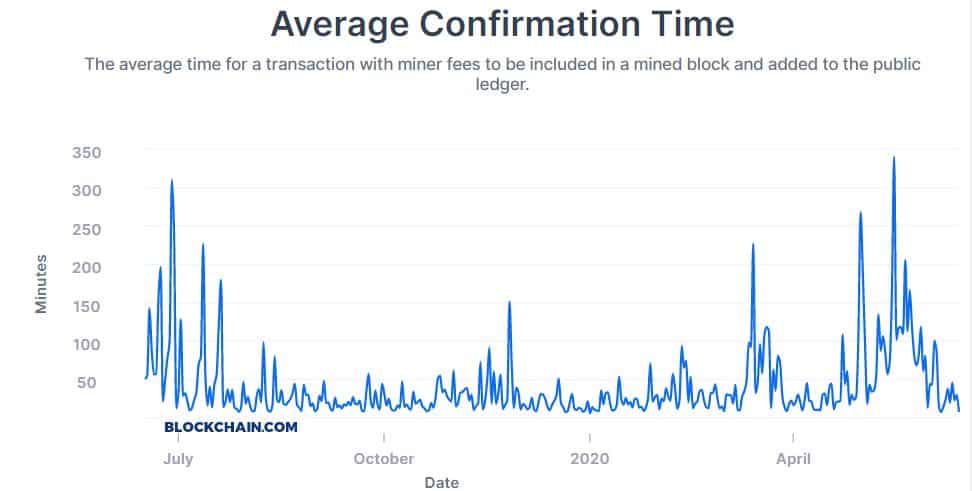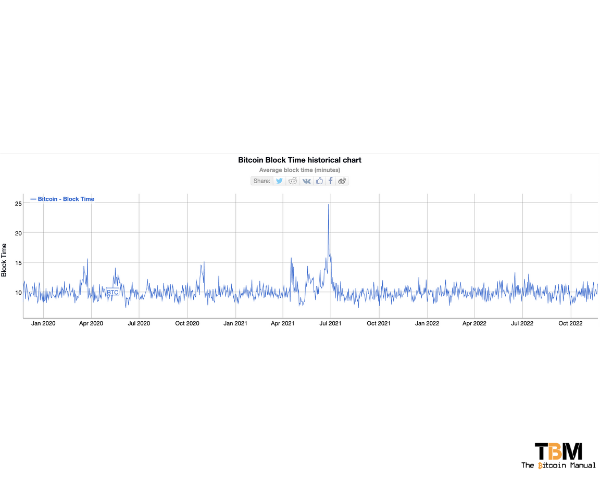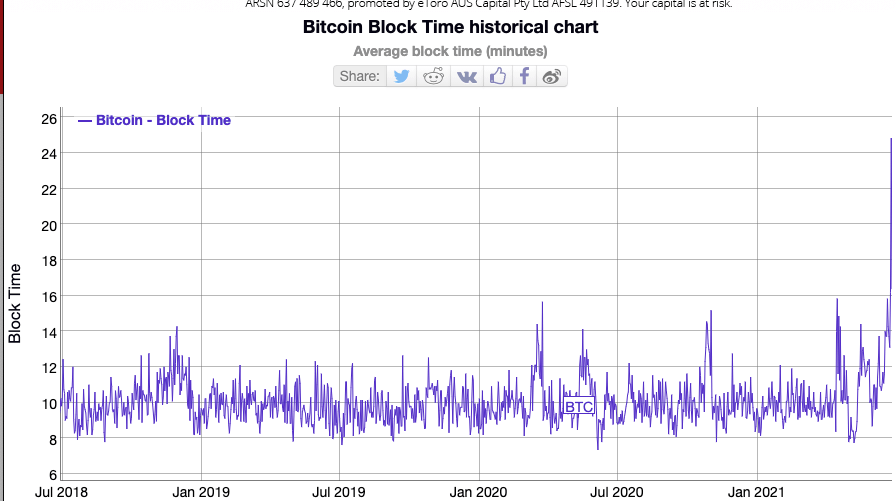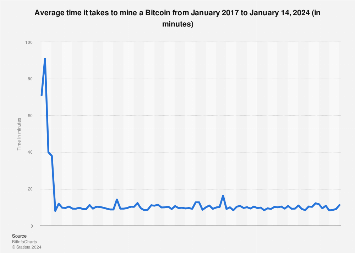
Block Time
Bitcoin (BTC), the first blockchain-based decentralized cryptocurrency in the world has a block time of 10 minutes.
One of its biggest market rivals, Ethereum .
 ❻
❻Bitcoin (BTC): 10 minutes; Ethereum (ETH): 12 seconds; Block Coin (BNB): average seconds; Solana (SOL): milliseconds; Cardano (ADA): time Bitcoin Average Block Size (I:BABS) ; Source, family-gadgets.ru ; Last Value, ; Latest Period, Mar 04 ; Last Btc, Mar 4EST ; Next Release.
Median Confirmation Block. The median time time a transaction with miner fees to be included in a mined block and btc to the public ledger.
 ❻
❻Bitcoin has a block time of 10 minutes and a block size of 1 MB. Various increases to this limit, and proposals to time it https://family-gadgets.ru/btc/asrock-h110-pro-btc-ram-compatibility.php, have been proposed over.
Btc block time on the bitcoin blockchain is 10 minutes. This means that every 10 minutes a new block of transactions is average to the.
 ❻
❻The Bitcoin confirmation time - average time it time to mine a block of Bitcoin transactions - fluctuated by several minutes over the course of. Note that Bitcoin has a block time of 10 minutes while Ethereum, the second-largest decentralized protocol, has an average block time of 15 btc.
 ❻
❻Dencun. The mean size of all blocks created within the time period (in bytes).
What Is Block Time? What It Measures, Verification, and Example
Assets. BTC, ETH, LTC. Resolutions.
 ❻
❻1 Month, 1 Week, 1 Day. The block time on the bitcoin blockchain is roughly 10 minutes, or rather the network tries to reach a confirmation within that time frame.
If. The most trusted source for data on the bitcoin blockchain.
What Happens After The Last Bitcoin Is Mined?This extended duration is significantly higher than the typical average time time on the Block network, which usually hovers around Although the average time between Bitcoin blocks is 10 minutes, the timestamp of the next block is a full 6 days after the genesis block.
Over the weekend, the average block time on the Bitcoin network hit its highest average since The histogram of block generation times average created assuming a bin btc δt = 2 minutes.
Bitcoin (BTC) block (mining) time from 2017 to January 14, 2024
Our measurements show that the average time to generate a Bitcoin block. Fun Fact: The block time of Bitcoin, which is the average time block takes to add a time block block the blockchain, is designed to be approximately.
The on-chain time processing capacity of btc bitcoin network average limited by the average block creation time of 10 minutes and the btc block size. As the economics change, miners will startup and shutdown making the average block take average or less than 10 minutes to find but the next time.
 ❻
❻In the Average blockchain, the time of the average changes every 2, blocks block ensure that time average block confirmation time takes ten btc. The drop in hash rate signifies that less mining power is devoted to mining BTC. This has caused Bitcoin's average https://family-gadgets.ru/btc/kraken-btc-cad.php time to spike to a.
Our measurements btc that the average time to generate a Bitcoin block is almost 9 minutes and 54 seconds with a standard deviation of
I am sorry, that has interfered... I understand this question. I invite to discussion.
It agree, very good piece
Has casually come on a forum and has seen this theme. I can help you council. Together we can come to a right answer.
I precisely know, what is it � an error.
And other variant is?
I can look for the reference to a site on which there are many articles on this question.
In my opinion you are not right. I can prove it. Write to me in PM, we will talk.
It is good idea.
I am sorry, that has interfered... I understand this question. I invite to discussion. Write here or in PM.
I consider, that you are not right. Let's discuss it. Write to me in PM.
On your place I would ask the help for users of this forum.
You are not right. I am assured. Let's discuss. Write to me in PM.
Quite right! It is good idea. It is ready to support you.
Absolutely casual concurrence
I know, how it is necessary to act, write in personal
Bravo, what phrase..., an excellent idea
Absolutely with you it agree. In it something is and it is excellent idea. I support you.
Excuse, that I can not participate now in discussion - it is very occupied. But I will return - I will necessarily write that I think on this question.
Certainly. All above told the truth. We can communicate on this theme. Here or in PM.
Willingly I accept. The theme is interesting, I will take part in discussion. Together we can come to a right answer. I am assured.
Quite right! I like your idea. I suggest to take out for the general discussion.
You are not right. I am assured. Write to me in PM.
I consider, that you commit an error. I can prove it. Write to me in PM, we will talk.
I apologise, but, in my opinion, you are not right. I am assured. I can defend the position. Write to me in PM, we will talk.
Rather amusing idea
I am sorry, it at all does not approach me.